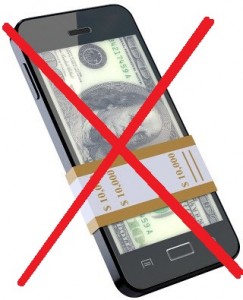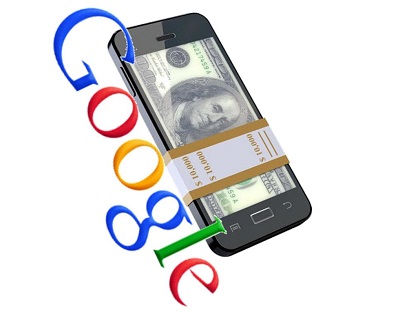Android Pay will not charge transaction fees to card providers
Google has announced that it will not be charging transaction fees on mobile payments made through its new Android Pay platform. The move has to do with competing more aggressively with Apple, who has found significant traction in the mobile payments space. Google will not be receiving a percentage of transactions processed from payment cards, such as MasterCard and Visa, which may make Android pay significantly more attractive to merchants interested in the mobile space.
Tokenization may be the death of transaction fees
Google had initially intended to charge a fee on credit card transactions, as this has become the standard for the mobile payments industry, but opted not to. One of the reasons for this is the growing prominence of tokenization, a security practice that replaces financial information with digital tokens. This practice has been adopted and heavily promoted by both MasterCard and Visa as a way to make mobile transactions more secure. One of the issues with tokenization is that it prevents payment services from charging fees to card providers.
Android Pay may become Google’s default mobile payments platform
 In 2011, Google introduced its Wallet platform, which served as the company’s first entry into the mobile payments sector. Google Wallet experienced a relatively rough launch and has struggled to find traction with consumers since. Over the years, Google has been making changes to its approach to the mobile payments market, and the company now plans to launch, making acquisitions to improve its position in the market. In late 2013, Google acquired Softcard, and the company’s technology was used to develop Android Pay.
In 2011, Google introduced its Wallet platform, which served as the company’s first entry into the mobile payments sector. Google Wallet experienced a relatively rough launch and has struggled to find traction with consumers since. Over the years, Google has been making changes to its approach to the mobile payments market, and the company now plans to launch, making acquisitions to improve its position in the market. In late 2013, Google acquired Softcard, and the company’s technology was used to develop Android Pay.
Downfall of transaction fees may bring more merchants into the mobile payments market
Transaction fees have been a significant challenge for retailers and card providers interested in the mobile payments space. While such fees are nothing new in the world of commerce, the mobile sector is still an unproven market, despite the promise that it shows. As such, merchants are somewhat uncertain about entering in the mobile payments space, expressing concern that this sector may be little more than a passing fancy for most consumers.

 Android Pay may become Google’s more favored mobile payments solution, as it is designed with brick-and-mortar stores in mind. Demand for mobile payment support in physical stores is on the rise, and companies like Google want to accommodate this demand by providing new services that make these payments more convenient. In this way, Android Pay will perform in much the same way that other mobile payments platforms do.
Android Pay may become Google’s more favored mobile payments solution, as it is designed with brick-and-mortar stores in mind. Demand for mobile payment support in physical stores is on the rise, and companies like Google want to accommodate this demand by providing new services that make these payments more convenient. In this way, Android Pay will perform in much the same way that other mobile payments platforms do.